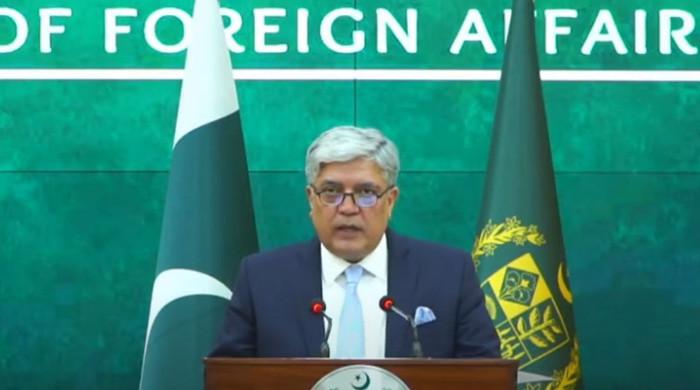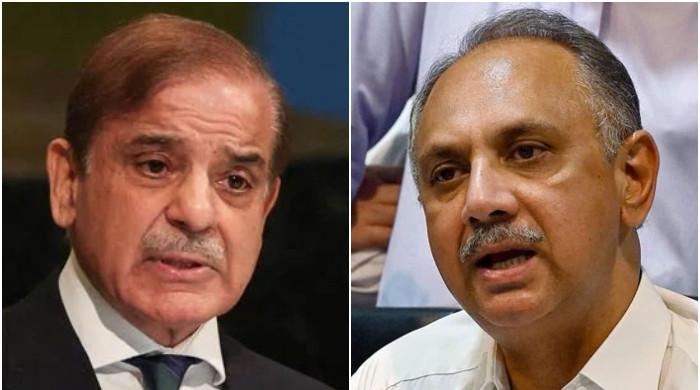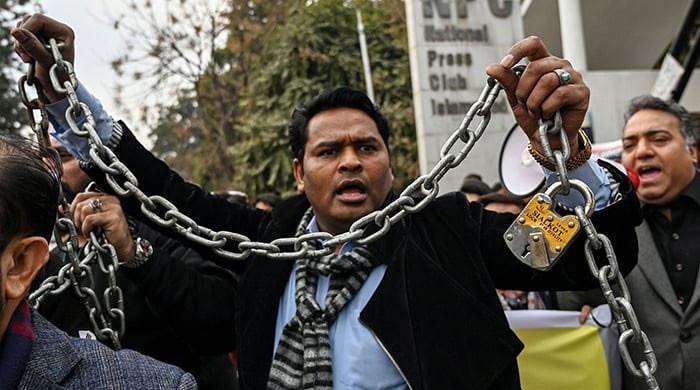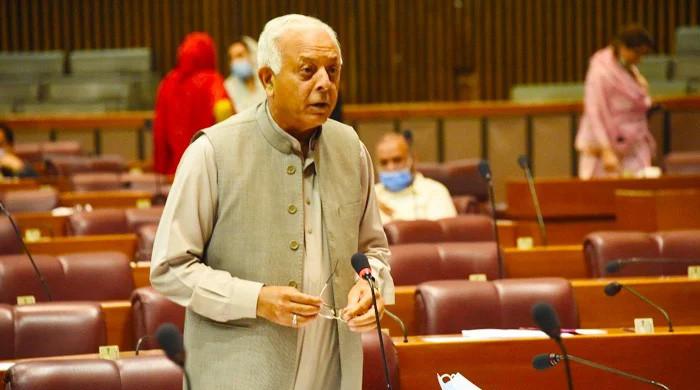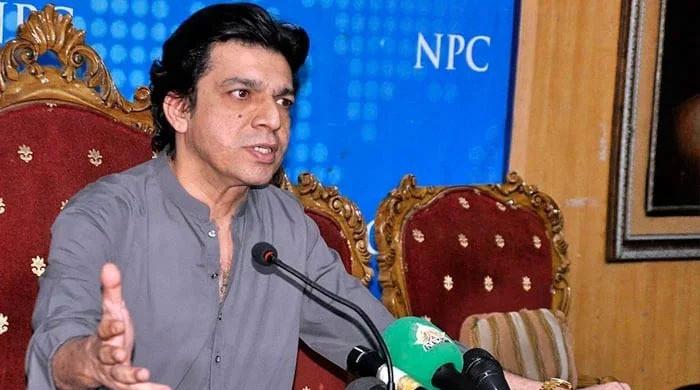Pakistan's real issue is emissions intensity, says Salaal Hasan
Solid carbon market expert and Ahya CEO emerges as determined player at COP29
November 21, 2024

Salaal Hasan, the CEO of Ahya, has emerged as a determined player at the 29th Conference of the Parties (COP29) in Baku where nations from around the world have gathered to discuss the urgent need to address climate change through innovative policies and collaborative action.
This collaborative action, which has been stressed by the world at the global forum, is evident in Pakistan's involvement in regional and global initiatives such as Ahya's Tawazun Marketplace, spearheaded by Hasan.
Arriving at the COP29 with a unique profile and ambitious plans for the development of a solid carbon market to attract green investments, Hasan announced that Tawazun has partnered with Cloverly, a leading United States-based digital infrastructure for the carbon markets.
This partnership seeks to bridge the gap between Middle Eastern projects and international buyers, opening new avenues for sustainability, innovation, and economic growth in the region.
This came days after Pakistan launched a Carbon Market Policy which positions the nation as a developing nation with much potential for reducing their emissions.
"Our focus has always been on accessibility and sustainability," Hasan told Forbes magazine soon after making the announcement.
However, Hasan also revealed the risks that investors may face in a country like Pakistan that is battling with severe challenges on the climate front.
"Carbon markets have risk rating mechanisms which accompany standards," Hasan told Geo.tv.
"Voluntary carbon markets have standards set by private sector bodies such as Verra, Gold Standard or Puro Earth. And risk ratings such as Calyx Global, BeZero or Sylvera. Right now, most of these standards are the US or EU's.
"The Middle East and Pakistan need to develop their own standard setting bodies and risk rating agencies."
The newly finalised carbon market policy, which was showcased during a high-profile event at COP29, is set to be implemented soon as it is currently waiting to be approved next month.
Coordinated by the prime minister's Climate Change Coordinator Romina Khurshid Alam, the policy aims to establish a regulatory framework to attract green investments and propel the country toward a low-carbon economy.
The policy underscores Pakistan's commitment to the Paris Agreement and its readiness to collaborate with both the private sector and international partners.
Alam emphasised the importance of partnerships in developing robust carbon markets, inviting stakeholders to co-create opportunities that foster sustainable investment.
Hasan said that when Pakistani projects are developed, these standards and ratings always rate the country low due to social political and economic factors.
"The other risks come from brokers and middlemen, which cause fragmentation and charge hefty upfront costs without transparency," said Hasan.
"The last is foreign exchange. Here, carbon registries play a pivotal role in ensuring that investment come into the country and not go out," he added.
Furthermore, when asked if he believed Pakistan's growth targets and its aspiration to become a tech destination (with more energy-consuming data centres) may impede its ability to sustain carbon market projects, he advised to take a conservative approach.
The climate expert revealed that Pakistan has a Nationally Determined Contributions (NDC) target of 50% BaU, which is modelled on an 8.5% gross domestic product (GDP) growth rate.
"Our economy has never grown at 8.5% in our lifetime," he explained to Geo.tv, adding that while such a factor may be "good for theory", it is better to be conservative when it comes to forming a trajectory.
"The MoCC (Ministry of Climate Change), which is the nationally-designated authority, must revise our NDC's to a more conservative growth rate," he advised.
The climate expert also emphasised that it is often repeated by our leaders that we account for 1% of global emissions.
"That is because our GDP is not that high compared to our populous and our last national GHG inventory was done more than five years ago on proxies (it can be far more accurate using actual activity data as per the GHG protocol)," said Hasan.
"Pakistan's real issue is emissions intensity, or amount of emissions per GDP primarily driven by inefficiencies in private sector enterprise," said Hasan.
"This is due to our high dependence on fossil fuels (which we weren’t using in the 90’s) for meeting our power demands (mainly coal power projects) as well as for fuelling our logistics sectors."
Concluding his thoughts on the matter, Hasan advised that, for Pakistan to transition to net zero and meet its NDC commitments, we must:
- Focus on a renewable energy transition and the government must incentivise the private sector to participate;
- Focus on real time data from the private sector and bring forward regulations for greenhouse gas emissions in the air from industry agri and through vehicles;
- Incentivise project developers in voluntary and compliance markets and use technology for driving transparency in both in line with articles 4, 5, 6, and 10 of the Paris Agreement.




